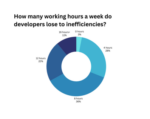
The professional development company Dale Carnegie just published results of its survey where it set out to determine the qualities that separate highly effective teams.
Using the 2,650 responses to its survey, it was able to narrow down seven recommendations to build a high performing team.
- Define a clear purpose and vision
Teams must have clear goals in order to ensure that team members can see how their own skillsets and tasks are contributing to the big picture.
Dale Carnegie recommends that leaders break big picture goals down into smaller milestones to enable teams to track progress, have discussions, and make changes to improve performance.
- Close perception gaps between productivity, satisfactions, and culture between leaders and employees
The study cites a report from Microsoft, which claims that 87% of employees feel productive at work, while only 12% of CEOs believe this is true.
In order to close this perception gap, the recommendation is to improve understanding on how individual employees experience the workplace. “This gap can be an issue as leaders, reflecting a more favorable view in many areas impactful to team outcomes, can overlook valuable opportunities for improvement and neglect the true needs of the team,” the report states.
- Understand what makes a team satisfied
According to the report, there are often similarities between satisfaction and high performance. Eighty-nine percent of high-performing teams are “very or extremely satisfied” with their team, while only 65% of non-high performers felt the same.
The top drivers for team satisfaction included the ability to collaborate, group participation, and trust. The qualities that most separated higher and low performers include growth opportunities, cooperation, and the ability to share ideas.
- Facilitate effective team communication
This goes hand-in-hand with establishing a clear purpose and vision, as those ideas need to be effectively communicated across the organization.
“A collective understanding through effective communication can help a team determine fit within the purpose and vision and provide extra motivation when heavy workloads or high-stress levels exist, ultimately supporting resiliency,” the report says.
- Have adaptability
This enables teams to adapt to ongoing changes in the workplace. According to the report, 74% of teams that exceed their goals had good access to training and development materials.
“A commitment to ongoing development opportunities must be a part of the organizational culture. Empowerment is key. Team members need to feel they have the necessary skill sets and permission to act and contribute in a productive way for their work product and colleagues,” the report says.
- Facilitate collaboration and cross-functionality
Dale Carnegie believes that successful teams have coworkers who share a healthy attitude towards each other and understand each other’s roles.
The research reveals that as the frequency of interaction among teams goes down, so does its chance of being a high-performing team. Collaboration and cross-functionality will remain even more important as new flexible work models, such as fractional work, role sharing, and matrixed teams, take hold.
- Technology can’t replace culture
As tools like generative AI, natural language processing, and VR/AR are entering the workplace, it’s important for teams to remember that “technology has a supportive role in creating and empowering high-performing teams, not a primary one.”
Dale Carnegie recommends that when exploring these new technologies and how they fit in the team, teams should also consider opportunities for improving their culture as well.






